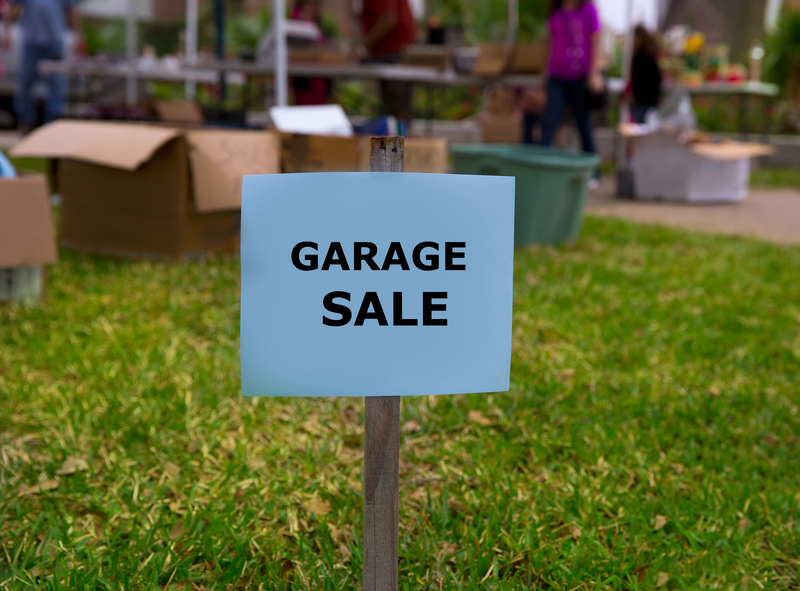Maximize Savings When Managing Bulky Waste Items: A Complete Guide
When it comes to disposing of bulky waste items -- be it old furniture, large appliances, or construction debris -- costs can quickly spiral out of control. Many homeowners and businesses face challenges in staying within budget while ensuring proper disposal. Fortunately, several proven strategies can help you maximize your savings and minimize the hassle associated with bulky waste management.

Understanding Bulky Waste Items
Before diving into money-saving tips, it's helpful to clarify what counts as bulky waste. Typically, these are large items too big for standard trash bins, such as:
- Old sofas, mattresses, and chairs
- Refrigerators, stoves, washing machines, and dryers
- Broken desks, filing cabinets, or closets
- Carpet rolls, large boxes, or scrap metal
- Renovation debris: drywall, lumber, tiles, and fixtures
Many communities limit how much bulky waste they'll collect at curbside, and some don't offer such services at all. This makes cost-effective bulk waste disposal a key concern for many households and businesses.
Why Is Bulky Waste Management Often Expensive?
Several factors contribute to the price tag associated with bulky waste removal:
- Labor and Transportation: Moving and hauling large items requires specialized vehicles and sometimes extra manpower.
- Landfill Fees: Disposing of large quantities or heavier items often incurs additional dump charges.
- Environmental Regulations: Many items (e.g., appliances with freon, electronics) have special disposal rules, adding complexity and cost.
- Limited Service Availability: Not all waste management companies offer bulky item pick-up, leading to higher premiums where it is available.
Understanding these underlying reasons is vital when strategizing to maximize savings on large waste removal.
Top Strategies to Save Money on Bulky Waste Disposal
1. Reuse, Donate, Or Sell Whenever Possible
One person's trash is another's treasure! Before paying for pickup, look for ways to keep your items out of the landfill:
- Donate usable items: Furniture, appliances, and electronics in decent condition can be given to charities or nonprofit organizations. Many offer free collection.
- Sell your bulky goods: Online marketplaces such as Facebook Marketplace, Craigslist, or OfferUp make it simple to connect with buyers willing to pick up items.
- Give away through Freecycle: If you can't sell it, giving it away might be an option. Local Freecycle groups encourage the sharing of items to keep them out of landfills.
This approach not only maximizes your savings by reducing disposal fees but also supports a circular economy, benefiting both the environment and your wallet.
2. Know Your Local Bulky Waste Collection Policies
Municipalities and local waste haulers often provide bulky item pickup services, but rules, schedules, and costs vary widely.
- Check for free pickups: Many cities offer residents one or two complimentary bulk waste pickups per year.
- Stay updated: Find out what's accepted, collection schedules, and preparation requirements (e.g., items must be curbside by a specific time and separated according to type).
- Bundle items when allowed: Some services price by the load rather than the item; combining multiple pieces could reduce per-item cost.
By understanding and working within local policies, you can minimize out-of-pocket costs and avoid fines for improper disposal.
3. DIY: Rent a Truck or Trailer
If you have access to a vehicle, consider handling the disposal yourself:
- Rent by the hour or day: Compare the cost of short-term truck or utility trailer rental against commercial pickup services.
- Coordinate with neighbors: Share costs by grouping your bulky items with those of neighbors or friends. Consider scheduling a "bulk haul day" for the community.
A little extra effort can translate to substantial savings on oversized waste removal, especially for larger projects like home renovations.
4. Separate and Sort Your Items
Not all items are created equal at the landfill. Many communities and disposal centers charge lower fees for recyclables or have dedicated drop-off events for certain items, such as electronics or metals.
- Metals: Scrap yards might pay you for metal appliances or bed frames.
- Electronics: Many retailers and local programs offer free e-waste recycling.
- Hazardous items: Items containing chemicals or freon require special handling and may incur extra charges if disposed of with general waste.
Proper sorting minimizes fees and maximizes opportunities for bulk waste item recycling.
5. Compare Prices for Junk Removal Services
If DIY isn't practical, price comparison is essential:
- Get multiple quotes: Call at least three bulky waste removal companies. Ask about minimum charges, per-item vs. per-load pricing, and any additional fees.
- Book during off-peak times: Early in the week and off-season periods sometimes have lower rates.
- Consider smaller, local haulers: They may offer more flexible services or better rates than national chains.
Comparison shopping can greatly reduce your bulky waste management expenses without sacrificing quality of service.
6. Leverage Bulk Discounts and Community Events
Many waste services and local governments offer cost-saving opportunities through group initiatives:
- Community bulk collection days: Annual or seasonal events often allow residents to discard large items at a fraction of regular costs - or even free!
- Neighborhood cleanups: Organize or join local efforts to negotiate reduced rates for group pickup with a single billing.
Participating in these events can be a highly effective strategy for anyone looking to save money while getting rid of bulky objects.
7. Get Creative with Upcycling and Repurposing
Many bulky items destined for the dump can be given new life:
- Transform old furniture: Refinish or repaint wood pieces, or turn pallets into garden planters.
- Use parts for DIY projects: Sink basins, doors, or metal frames can find use in renovations or crafts.
Upcycling minimizes disposal needs, helps the environment, and can even add value to your home or business.
Special Considerations for Businesses and Contractors
Large-scale projects (like office cleanouts or building renovations) involve significant bulky waste, making cost management even more crucial.
- Negotiate with waste management companies: Long-term contracts or volume-based deals can bring down rates.
- Implement a sorting policy: Encourage teams to separate salvageable from disposable materials to maximize recycling and minimize landfill charges.
- Reclaim construction materials: Donate or resell usable lumber, fixtures, and equipment.
Businesses that prioritize efficiency often find substantial savings in large volume waste management.
What to Avoid: Common Mistakes That Worsen Bulky Item Disposal Costs
- Ignoring local regulations: Illegal dumping or improper sorting can result in hefty fines.
- Throwing away recyclable items: Failing to separate recyclables means lost opportunities for rebates or free disposal.
- Poor scheduling: Waiting until the last minute may force you to pay premium rates for emergency junk removal.
- Uninformed service selection: Going with the first available provider rarely results in the best deal.

Bulky Waste Disposal: A Quick Checklist to Maximize Savings
- Assess each item: Can it be sold, donated, or reused?
- Contact your city: Learn about free or discounted collection dates and rules.
- Compare service providers: Don't hesitate to negotiate!
- Plan ahead: Avoid last-minute arrangements that carry additional costs.
- Stay organized: Group items for pickup and sort by material (metal, plastic, e-waste).
- Participate in community events: Take advantage of bulk collection days and neighborhood cleanups.
- Explore upcycling: Get creative before tossing something out.
Conclusion: Save Big While Managing Bulky Waste Responsibly
Managing bulky waste items doesn't have to be a financial burden. From donation and resale to community initiatives and smart shopping for removal services, there are myriad ways to maximize your savings while keeping your home, business, and community clean. By being proactive, resourceful, and informed, you can reduce waste, save money, and help protect the environment. Remember, every large item you keep out of the landfill or dispose of responsibly is a step toward a cleaner, greener, and more cost-efficient future.
Frequently Asked Questions: Bulky Waste Saving Tips
-
What is considered a bulky waste item?
Bulky waste typically refers to oversized items such as appliances, furniture, mattresses, and construction debris that are too large for regular trash collection. -
How can I find free bulky item pickup in my area?
Check your city's public works or waste management website for schedules and rules regarding complimentary or subsidized bulky item removal. -
Is it cheaper to rent a truck or use a junk removal service?
For a few items, DIY transport might save money. For many heavy/large items, compare the cost of your time, rental, and dump fees against junk removal company rates.
By following the guidance in this article, you'll discover multiple ways to maximize your savings when managing bulky waste items -- lowering costs, saving time, and helping the environment all at once.